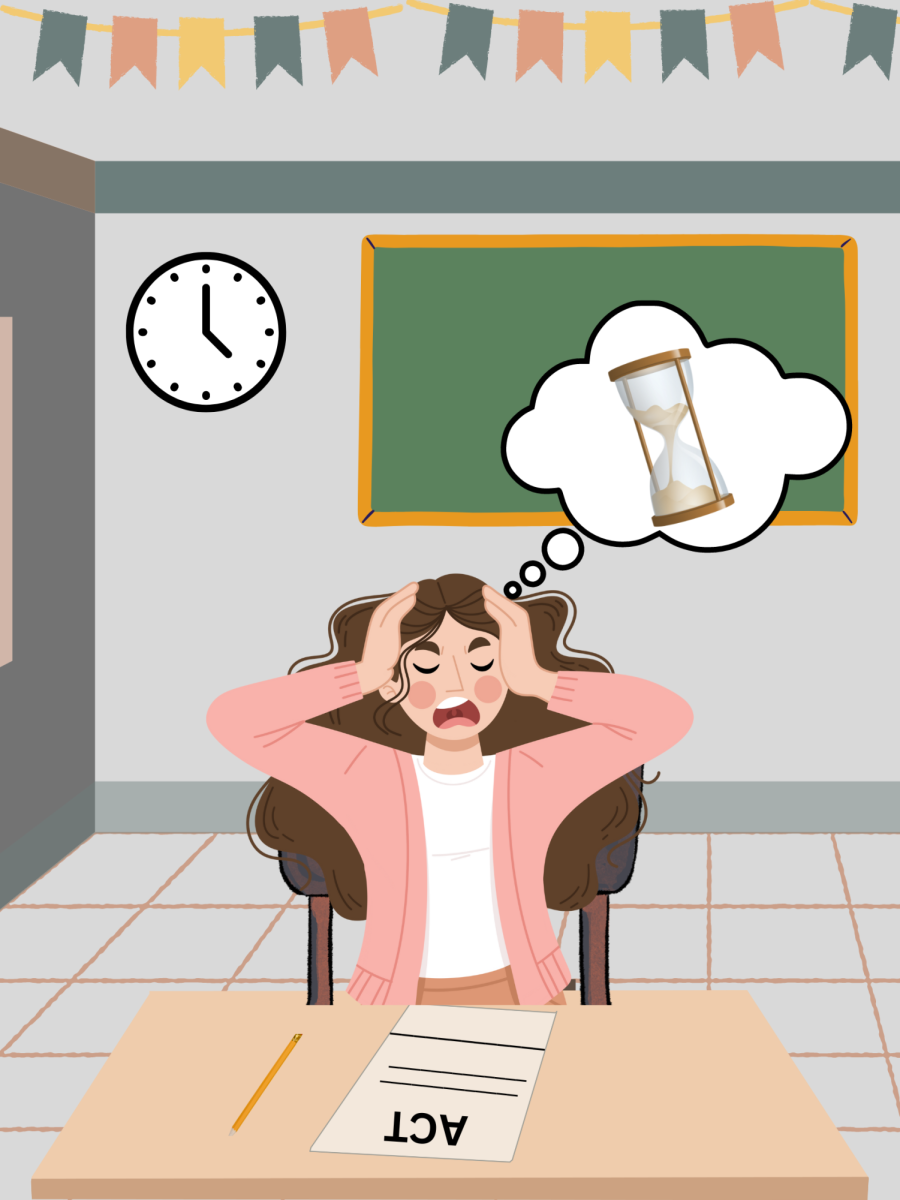Standardized tests – like the ACT or SAT- are very popular among high school students, but they are known to cause anxiety. These tests have many disadvantages, which the new version may help improve.
The ACT and SAT are still offered despite many colleges being test-optional. Their popularity is based on the fact that they can boost college acceptance chances and provide opportunities for merit scholarships. About 1.4 million students from the class of 2023 took the ACT, and approximately 1.9 million students took the SAT.
Standardized tests are used to determine how well a student will succeed in college. While the ACT claims to provide an accurate representation of a student’s potential, this is ultimately misleading; a student’s GPA is a better representation of their success in college.
Anxiety is a significant disadvantage for students, approximately 25 to 40 percent of U.S. students experience test anxiety. Anxiety levels have been rising among teens and standardized tests aren’t helping. Students feel even more anxious when encountered with timed tests. One of the biggest complaints students have is running out of time when taking the tests.
The ACT is listening to students nationwide and changing its tests. The new version of the ACT is set to launch in April, and the changes are significant; the number of questions has been reduced by 44 questions, and students will receive more time per question. Additionally, the answer choices on the math section will be reduced by one.
The new version will also provide more options. Similarly to the writing section, the science section will become optional. Students can choose whether to take the test in paper format or online. These changes aim to improve how well students perform on the tests.
ACT has been getting positive reactions from both students and school councils regarding the new accommodations. Ellie Thomas a school counselor at Pleasant Valley High School states “I think ACT is doing a great job with keeping up with student feedback. They will offer more flexibility to students because the science and writing section will be optional.” Adding more flexibility to the test will help students feel more comfortable and confident.
The ACT extending the time is the most requested and well liked change. Thomas conveyed “ Students often feel pressured to rush through the test because of the timed section, so reducing the questions and having a greater time/question ratio may help students feel more confident and increase scores.” Thomas is not the only one in support of the changes but so are many students at PV.
Students believe that the ACT changes will contribute to higher scores. Senior Reese Winslow recently took the ACT and is in favor of the new modifications. “I think the new improvements would help me improve my ACT score, because a lot of time I end up rushing and filling in random bubbles just to try and help my score,” Winslow conveyed.
The new changes will help improve the scores of students with different testing abilities. “I think with the accommodations more people with different varieties of learning are able to take the test and get more options for their post secondary plans,” said senior Brooke Yulga who also recently took the ACT.
The ACT has done an excellent job listening to student feedback. The ACT enhancements will have a beneficial impact on students and their test results, both students and councils have a positive view on the new changes.









